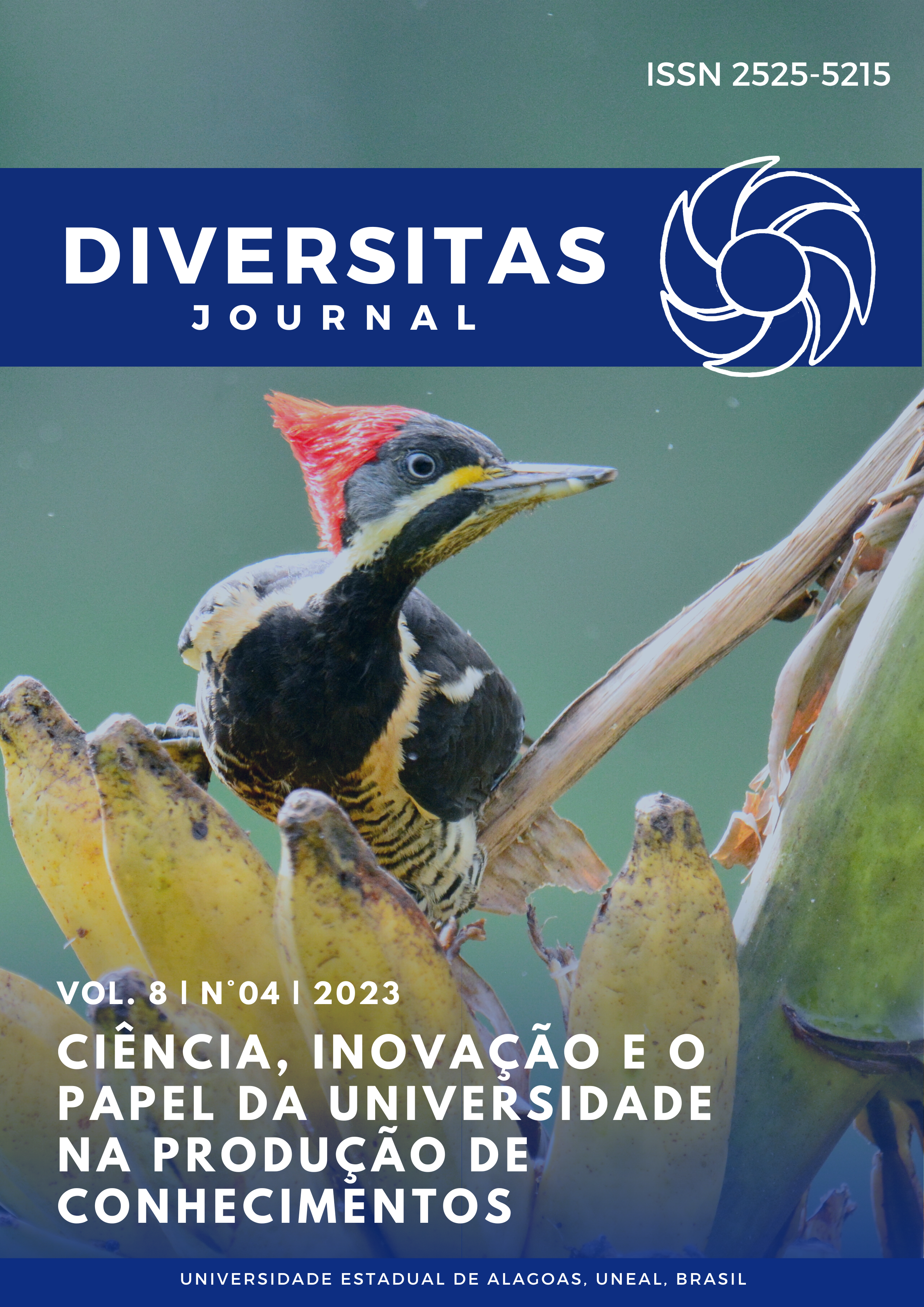Envelhecimento Populacional
Os impactos nas políticas públicas
DOI:
https://doi.org/10.48017/dj.v8i4.2516Palavras-chave:
Velhice, previdência social, aposentadoriaResumo
Este artigo volta-se para o processo de envelhecimento populacional brasileiro com base nas projeções e estimativas populacionais e os impactos nas políticas públicas desse novo cenário. Assim, entrelaçadas pelas políticas públicas, a expectativa de vida, a saúde do idoso, a legislação da previdência social e o planejamento financeiro são aspectos que permeiam a vida das pessoas categorizadas socialmente como velhas. Para tal finalidade, a pesquisa bibliográfica, catalogação da legislação previdenciária e de políticas públicas em prol das pessoas idosas foram acessadas no processo de produção do conhecimento. O epicentro do estudo baseia-se na Interdisciplinaridade com fundamentos nas Ciências Humanas e Sociais e Psicologia Social, e também nas obras e conceitos de autoras como Ecléa Bosi, como também Guita Grin Debert. As obras dessas autoras contribuem para refletir sobre os estigmas em torno da velhice, do envelhecimento e da aposentadoria. A metodologia utilizada com base nos princípios dos Incidentes Críticos, com autoras como Dolores Galindo e Renata Rodrigues. Diante desse cenário, a investigação baseia-se na identificação dos aspectos das: i) políticas públicas, velhice, aposentadoria, planejamento financeiro. Tais aspectos não são analisados unilateralmente. Visto que, a transição do adulto para velhice não ocorre abruptamente, e sim, em forma de processo conduzido pelo próprio indivíduo.
Métricas
Referências
BEAUVOIR, S. D. (2018). A velhice. (3ª ed.). Nova Fronteira.
BOSI, E. (2015). Memória e Sociedade: Lembranças de velhos. Companhia das Letras.
BRASIL. (2018). Projeções da População. Instituto Brasileiro de Geografia e Estatística/IBGE. https://www.ibge.gov.br/estatisticas/sociais/populacao/9109-projecao-da-populacao.html?=&t=resultados
DEBERT, G. G. (2012). A reinvenção da Velhice. FAPESP - Fundação de Amparo à Pesquisa do Estado de São Paulo.
Emenda Constitucional n.º 103/2019 da Presidência da República. (2019). Diário da República: I Série: n° 220/2019. https://www.planalto.gov.br/ccivil_03/constituicao/emendas/emc/emc103.htm
FOUCAULT, M. (2008) A arqueologia do saber. Forense Universitária.
FRANÇA, L. H. F. P., MENEZES, G. S., BENDASSOLLI, P. F., & MACEDO, L. S. S. (2013). Aposentar-se ou Continuar Trabalhando? O que Influencia essa Decisão? PSICOLOGIA: CIÊNCIA E PROFISSÃO, 33 (3), 548-563. https://www.scielo.br/j/pcp/a/XTgLNpnHn6vPSQcC3FdXTDG/?format=pdf&lang=pt
FRANÇA, L. H. F., NALIN, C. P., BRITO, A. R. S., AMORIM, S. M., RANGEL, T., & EKMAN, N. C. (2014). A percepção dos gestores brasileiros sobre os programas de preparação para a aposentadoria. Estudos Interdisciplinares sobre o Envelhecimento. https://seer.ufrgs.br/index.php/RevEnvelhecer/article/view/50434/33292
FRANÇA, L. H. F. P.; SEIDL, J. (2016). RESENHA: Manual da Oxford sobre aposentadoria. Revista Psicologia: Organizações e Trabalho, 16(3), jul-set, pp. 308-310. http://pepsic.bvsalud.org/scielo.php?script=sci_arttext&pid=S1984-66572016000300009
GALINDO, D. C. G.; RODRIGUES, R. V. (2014). Incidentes críticos, um fio de Ariadne na análise documental. Centro Edelstein de Pesquisas Sociais.
GALINDO, D. (2006). Tese: Ilustrar, modificar, manipular: Arte como questão de segurança da vida. 2006. https://sapientia.pucsp.br/bitstream/handle/17176/1/PSO%20-%20Dolores%20Galindo.pdf
GALINDO, D. C. G.; RIBEIRO, F. R. G.; SPINK, M. J. (2007). Incidentes Críticos Como Ponto de Partida Para Desembrulhar Redes. Anais do XIV Encontro Nacional da ABRAPSO. http://www.abrapso.org.br/siteprincipal/anexos/AnaisXIVENA/conteudo/html/mesa/1769_mesa_resumo.htm
GANDRA, A. (2021/06/15). Aumentam casos de violência contra pessoas idosas no Brasil. https://agenciabrasil.ebc.com.br/direitos-humanos/noticia/2021-06/aumentam-casos-de-violencia-contra-pessoas-idosas-no-brasil
LEBRÃO, M. L. (2007). O envelhecimento no Brasil: aspectos da transição demográfica e epidemiológica. Saúde Coletiva, bimestral, vol. 4, núm. 17, 135-140. https://www.nescon.medicina.ufmg.br/biblioteca/imagem/2559.pdf
Lei n.º 10.741/2003 da Presidência da República. (2003). Diário da República: I Série: n° 192/2003 https://www.planalto.gov.br/ccivil_03/LEIS/2003/L10.741.htm
LUGONES, M. (2003) Pilgrimages/Peregrinajes: Theorizing Coalition Against Multiple Oppressions. Rowman & Littlefield Publishers.
MIRANDA, G. M. D., MENDES, A. D. C. G., & SILVA, A. L. A. (2016/03/21). O envelhecimento populacional brasileiro: Desafios e consequências sociais atuais e futuras. Revista Brasileira de Geriatria e Gerontologia. https://www.scielo.br/j/rbgg/a/MT7nmJPPRt9W8vndq8dpzDP/?lang=en
NETTO, M. P. (2002). O estudo da velhice no século XX: histórico, definição do campo e termos básicos. Tratado de Geriatria e Gerontologia. http://pepsic.bvsalud.org/scielo.php?script=sci_nlinks&ref=2889429&pid=S1516-0858201500020000800030&lng=pt
Downloads
Publicado
Como Citar
Edição
Seção
Licença
Copyright (c) 2023 Thiago Oliveira da Silva, Dolores Cristina Gomes Galindo

Este trabalho está licenciado sob uma licença Creative Commons Attribution 4.0 International License.
O periodico Diversitas Journal expressa que os artigos são de unica responsabilidade dos Autores, conhecedores da legislação Brasileira e internacional. Os artigos são revisados pelos pares e devem ter o cuidado de avisar da possível incidencia de plagiarismo. Contudo o plagio é uma ação incontestavel dos autores. A Diversitas Journal não publicará artigos com indicios de Plagiarismos. Artigos com plagios serão tratados em conformidade com os procedimentos de plagiarismo COPE.
A violação dos direitos autorais constitui crime, previsto no artigo 184, do Código Penal Brasileiro:
“Art. 184 Violar direitos de autor e os que lhe são conexos: Pena – detenção, de 3 (três) meses a 1 (um) ano, ou multa. § 1o Se a violação consistir em reprodução total ou parcial, com intuito de lucro direto ou indireto, por qualquer meio ou processo, de obra intelectual, interpretação, execução ou fonograma, sem autorização expressa do autor, do artista intérprete ou executante, do produtor, conforme o caso, ou de quem os represente: Pena – reclusão, de 2 (dois) a 4 (quatro) anos, e multa.”


















